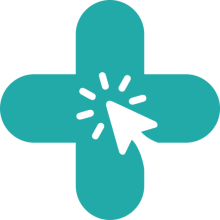Published - Sun, 03 Jul 2022

HOW TO LOWER URIC ACID LEVELS NATURALLY
To lower your chance of contracting some of the chronic lifestyle diseases that are becoming more widespread, a good diet is just as important as developing certain healthy practices. High uric acid levels are one issue that many of you may have due to our busy schedules and convenient options. When a molecule called purine is broken down inside of your body, a compound known as uric acid is produced. Peas, spinach, anchovies, mushrooms, dry beans, and even beer contain purine. Although some people with gout require medication, dietary and lifestyle adjustments may also be beneficial.
Lowering uric acid can lower the likelihood of developing the illness and may potentially stop flare-ups. Here are some natural remedies that can help you manage high uric acid levels:
Apple Cider Vinegar: Drink a glass of water with one teaspoon of organic apple cider vinegar every day. A natural cleanser and detoxifier, apple cider vinegar has these properties. Malic acid, which is present in it, aids in the breakdown and removal of uric acid from the body. You should consume at least one apple daily because they also contain malic acid.
Avoid medications that raise uric acid levels: Uric acid levels may rise as a result of some drugs. Diuretic medications (such as furosemide (Lasix) and hydrochlorothiazide), immune system suppressants (particularly before or after an organ donation), and low-dose aspirin are a few of them.
Avoid alcohol and sugary drinks: A higher risk of getting gout is associated with heavy alcohol and sugary beverage use (including sodas and sweetened juices). Alcohol and sweetened beverages also contribute extra calories to the diet, raising uric acid levels and perhaps leading to weight gain.
Balance insulin: Gout sufferers are more likely to develop diabetes. Compared to those without gout, women with gout are 71 percent more likely to have type 2 diabetes, while men are 22 percent more probable. Risk factors for both diabetes and gout include being overweight and having high cholesterol.
Celery seeds: Omega-6 fatty acids and other diuretic oils are abundant in celery seeds. As a potent diuretic, it aids in eliminating extra fluid from the body by encouraging the kidneys to excrete uric acid. Your blood becomes more alkaline, and it also reduces bodily inflammation. Once a day, you can take a half teaspoon of dried celery seeds, but be sure to drink a lot of water.
Drink coffee: Coffee drinkers have a lower risk of developing gout. Coffee consumption may be associated with a decreased risk of gout. However, there wasn't enough proof to support a definitive relationship.
Drink plenty of water: By maintaining hydration, you can rid your body of all toxins and help your kidneys get rid of uric acid. Drink at least 8 to 10 glasses of water per day.
Eat antioxidant-rich fruits and vegetables: More antioxidant-rich berries, like cherries, blueberries, and strawberries, should be consumed. Anthocyanins, a type of flavonoid found in dark-colored berries, aid to reduce inflammation and stiffness. Additionally, alkaline foods that balance your body's acid levels include bell peppers and tomatoes.
High fiber foods: To reduce the amount of uric acid in your blood, increase your intake of high-fiber meals. Dietary fiber helps your body get rid of excess uric acid by absorbing it from your blood and helping it to do so. For soluble fiber, try oats, bananas, and grains like jawar and bajra.
Lime juice: To flush out the extra uric acid, consume lime water at least twice daily. Citric acid, which is present in limes, aids in the uric acid's dissolution. Additionally, consume fruits like amla, guava, and oranges, which are high in vitamin C.
Limit purine-rich foods: Purines are substances that are found in some foods naturally. Some healthy foods have high purine content, thus reducing intake rather than completely cutting them out may be preferable. Excessive consumption of alcohol, including beer and liquor, high-fat foods, organ meats, such as liver and sweetbreads, and sugary foods and beverages are examples of foods high in purine.
Maintain a healthy body weight: As obesity raises the risk of gout, maintaining a reasonable body weight may help lower the risk of gout flares. Focus on making long-term, sustainable changes to their diet, activity level, and food preferences to manage their weight. Lowering blood uric acid levels and enhancing general health can both be accomplished by maintaining a healthy weight.
Stress reduction: Increased stress and anxiety may also increase the likelihood of inflammation, which in turn may increase the risk of hyperuricemia. You can achieve the same results by leading a healthy lifestyle that includes regular exercise, mindful eating, and enough sleep.
Created by
Rigomo Team
Rigomo is a leading online education platform that offers a wide range of courses to help individuals enhance their skills and achieve their career goals. With our user-friendly interface and expert instructors, we strive to provide high-quality education to everyone, anytime and anywhere. Join us today and take the first step towards a brighter future.
Rigomo is an e-learning platform that was founded in 2019 by a team of dedicated professionals with a passion for revolutionizing the way people learn. The platform offers a range of online courses that cover various industries, including business, technology, healthcare, and more.
Rigomo's courses are designed to be interactive and engaging, with a focus on practical skills that learners can apply in their careers. The platform uses a combination of video lectures, quizzes, and hands-on projects to help learners master the subject matter.
Rigomo is committed to providing affordable and accessible education to people around the world. The platform offers a range of pricing options, including monthly and annual subscriptions, as well as pay-as-you-go options for individual courses.
Since its launch, Rigomo has received numerous accolades for its innovative approach to e-learning. The platform has helped thousands of learners across the globe acquire new skills and advance their careers.
As Rigomo continues to grow, the team remains committed to providing high-quality education that is accessible to all. The platform is constantly updating its courses and features to ensure that learners have access to the latest tools and technologies.
Comments (0)
Search
Popular categories
Health and Wellness
231Skill Development
7Technology
5Community Impact
2Success story
2Creativity
1Latest blogs

DeepSchool: The Story of an Idea That Refused to Sit Still
Tue, 02 Dec 2025

Transforming Emergency Care: The Story Behind Rigomo's Revolutionary PPMMP Course
Sun, 12 May 2024

Empowering Rural Healthcare: How Pogiko's AI is Bridging the Gap in Medical Services
Thu, 25 Apr 2024

Write a public review